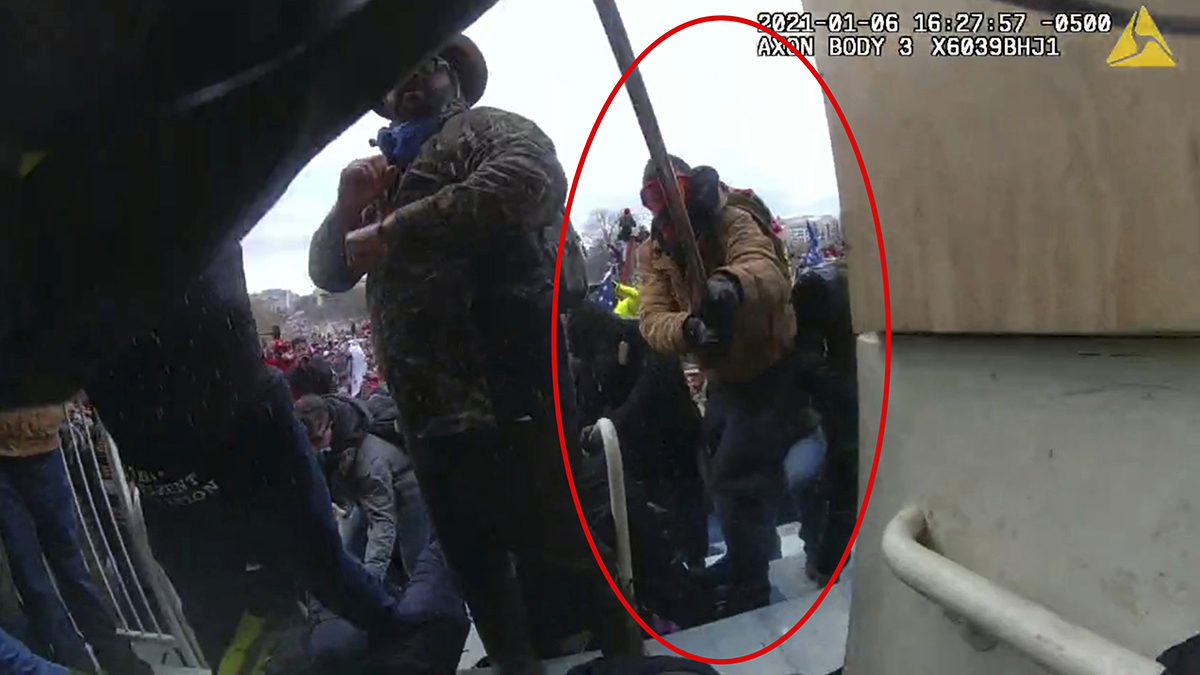One month after the Supreme Court struck down a crucial provision of the Defense of Marriage Act, gay Americans and the government alike are still sorting through the ramifications of the ruling — just as advocates double down on their efforts to legalize same-sex marriage in the states.
When the court declared unconstitutional a key part of the 1996 law that barred the federal government from recognizing same-sex couples’ marriages, it changed how married same-sex couples would be treated under the law, laying the groundwork for them to get the same federal spousal benefits and immigration rights as straight couples. It also gave a huge boost to the idea that same-sex marriages are marriages like any other.
“The Supreme Court ruling has added a great deal of momentum, understanding and sympathy,” said Evan Wolfson, founder and president of national gay marriage advocacy group Freedom to Marry. “We still have to take that momentum, understanding and sympathy and put them to work.”
Putting them to work has meant, for Wolfson’s group, parsing the meaning of the Supreme Court’s ruling, and ensuring the federal government complies. It has also meant a renewed focus on shoring up public support for same-sex marriage nationwide and a flurry of new campaigns in states seen as ripe for legalizing it.
BACK TO THE STATES
Just as the court struck down a key part of DOMA, it also dismissed an appeal over California’s gay marriage ban, clearing the way for same-sex marriages to resume in the nation’s most populous state.
California began marrying same-sex couples just two days after the Supreme Court handed down its ruling. It appears set, for now, to continue doing so, too: Despite efforts by Prop 8 proponents and by a San Diego county clerk, saying the ban was state law, the state’s Supreme Court refused this week to halt same-sex marriages.
U.S. & World
Illinois and New Jersey, both of which now recognize same-sex couples’ civil unions, are next on the list of states where advocates see a shot at legalizing same-sex marriage. So is Hawaii, also a civil unions state — and the state where the possibility of same-sex marriage recognition back in the '90s was enough to spur Congress to pass DOMA.
Advocates say that where civil unions might once have been thought enough by state legislatures, the Supreme Court’s ruling suggest otherwise, and could help state efforts toward expanding protections.
“The ruling was so clear in talking about how personally demeaning and unfair it is to gay couples like Edie and Thea, effectively saying, 'Your love is not respected,'” Wolfson said. “The ruling also made clear that there is no good reason for this discrimination.”
An effort is underway in Oregon, meanwhile, to overturn a state constitutional ban on same-sex marriage, as well as to pass a new amendment legalizing same-sex marriage into the state constitution. If successful, the effort would be the first such successful effort at writing same-sex marriage into a state constitution.
Also on advocates’ radar is Pennsylvania, one of the few states where there is no constitutional amendment banning same-sex marriage, even though a law exists that effectively bans it. That law is called the Defense of Marriage Act and, like the now-gutted federal version, was passed in 1996.
Pennsylvania’s attorney general refused this month, after a lawsuit was filed challenging that ban, to defend it in court and called it “wholly unconstitutional.” And this week, an official in charge of marriage licenses for a county just outside Philadelphia forced the issue when he began issuing licenses to same-sex couples despite the state’s ban.
A PATCHWORK OF LAWS
“The challenge is that the ruling doesn't recognize marriage in all states,” said Allison Steinberg of the New York LGBT rights advocacy group Empire State Pride Agenda. “It's confusing to people if their place of residence or their place of employment isn't in the same state as where they were married.”
That, for many advocates, is another reason to double down on the state-by-state effort toward recognition of same-sex marriage in the states.
But even states that had already recognized same-sex marriage are making their own efforts to comply with the ruling. This week, New York Gov. Andrew Cuomo announced that married same-sex couples — like Edie Windsor, the widow whose Supreme Court challenge ultimately felled DOMA — would be refunded the state estate taxes they had had to pay because the federal government didn’t recognize their marriages.
The ramifications elsewhere aren’t so clear.
“What the Supreme Court ruling did was create kind of a patchwork of laws,” Steinberg said. “What we're doing is trying to sift through that and communicate to our community the benefits that they’ll soon have access to.”
That has meant working with federal agencies as they update their rules and policies to reflect the new federal status of married same-sex couples. Immigration agencies and the Pentagon have already taken major steps toward implementing the new rules, Wolfson said.
“What's been impressive has been not just the overall momentum that the court has added to the campaign, but also the tangible protections that so many people have begun to share in — the lives that have already benefited,” he said.
Still, more guidance is still needed from other agencies, particularly the Internal Revenue Service, he said. “Every day of denial is a day of real hardship and uncertainty for families.”



